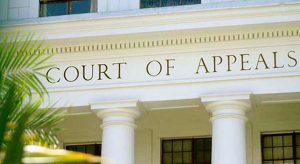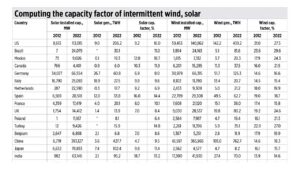BSP to stand pat on rates anew — poll

THE PHILIPPINE central bank is widely expected to keep its policy rate at a record low this week to support the economy amid uncertainty over the Omicron variant, according to analysts.
All 15 analysts in a BusinessWorld poll last week said they expect the Monetary Board to maintain the overnight reverse repurchase rate at 2% at this year’s last policy-setting meeting on Dec. 16.
The Bangko Sentral ng Pilipinas (BSP) has not touched the benchmark interest rates since Dec. 17, 2020.
Analysts believe the emergence of the new coronavirus disease 2019 (COVID-19) variant, which is said to be more transmissible, strengthened the case for the BSP to retain its accommodative policy setting.
The policy rates will likely be unchanged as prices remain elevated and the economic recovery is still fragile due to possible impact of Omicron, according to Mitzie Irene P. Conchada, an economist from the De La Salle University.
“More data seem to be pointing to a less virulent type of COVID-19, but this is not something that should be taken for granted especially noting the lessons that were learned about the COVID-19,” UnionBank of the Philippines, Inc. Chief Economist Ruben Carlo O. Asuncion said, adding there is “no reason yet for the BSP to make a move at this point.”
The highly mutated COVID-19 variant, which was first reported in South Africa, spooked markets late last month on concerns it may spark a fresh surge in global cases.
The Philippines has already tightened its borders and restricted arrivals from countries where Omicron has been detected.
Analysts also said there is a need to assess if the Philippine economic growth is now sustainable.
“The robust third-quarter gross domestic product (GDP) print was a step in the right direction but we will need to see more data points to validate if we can string together impressive growth, sans the benefits of a favorable base effect,” ING Bank N.V. Manila Senior Economist Nicholas Antonio T. Mapa said.
For the July to September period, the economy expanded by 7.1% year on year and 3.8% quarter on quarter. GDP grew by 4.9% in the first nine months, near the high end of the government’s 4-5% full-year target.
Mr. Mapa said the BSP is likely to look past the above-target inflation, which was mostly caused by low supply.
Inflation eased to a four-month low of 4.2% in November from 4.6% in October, but exceeded the BSP’s 2-4% target range.
The central bank expects inflation to average by 4.3% this year, before going back to within target at 3.3% and 3.2% by 2022 and 2023.
Colegio de San Juan de Letran Graduate School Dean Emmanuel J. Lopez said the economy is only beginning to pick up “after almost 22 months of hiatus.”
“Demand is within the manageable level despite the rush of holiday spending,” Mr. Lopez said in an e-mail.
Analysts believe the central bank will start to tighten policy by 2022, depending on the sustainability of economic growth and the upcoming national polls.
“We expect the BSP to start raising rates in the first quarter of 2023, when the economic recovery will be on a firmer footing,” Makoto Tsuchiya, an economist from Oxford Economics said.
However, he warned that the central bank may need to counteract should there be possible risks from the policy normalization of the US Federal Reserve.
The Fed is widely expected to hasten their removal of policy support, and possibly give hints on raising interest rates in 2022.
“[The] US tapering and a related currency depreciation may force the BSP to raise rates earlier than desired, in order to avoid persistently higher inflation through imported prices,” Mr. Tsuchiya said.
In previous cycles, the BSP did not adjust rate settings in the months prior to an election.
“We expect the earliest rate hike to be done in third quarter of 2022 when the elections are over and economic recovery has gained enough traction to allow room for policy normalization,” Mitsubishi UFJ Financial Group Global Research analyst Sophia Ng said.
BSP Governor Benjamin E. Diokno has stressed they will remain accommodative, but will be ready to respond to any second-round effects of inflation that could be a risk to price stability. — Luz Wendy T. Noble




